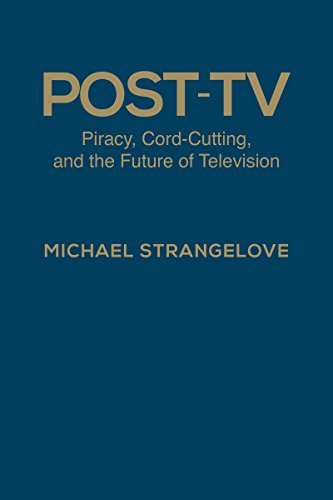

Most ebook files are in PDF format, so you can easily read them using various software such as Foxit Reader or directly on the Google Chrome browser.
Some ebook files are released by publishers in other formats such as .awz, .mobi, .epub, .fb2, etc. You may need to install specific software to read these formats on mobile/PC, such as Calibre.
Please read the tutorial at this link: https://ebookbell.com/faq
We offer FREE conversion to the popular formats you request; however, this may take some time. Therefore, right after payment, please email us, and we will try to provide the service as quickly as possible.
For some exceptional file formats or broken links (if any), please refrain from opening any disputes. Instead, email us first, and we will try to assist within a maximum of 6 hours.
EbookBell Team

0.0
0 reviewsIn the late 2000s, television no longer referred to an object to be watched; it had transformed into content to be streamed, downloaded, and shared. Tens of millions of viewers have “cut the cord,” abandoned cable television, tuned into online services like Netflix, Hulu, and YouTube, and also watch pirated movies and programmes at an unprecedented rate. The idea that the Internet will devastate the television and film industry in the same way that it gutted the music industry no longer seems farfetched. The television industry, however, remains driven by outmoded market-based business models that ignore audience behaviour and preferences.
In Post-TV, Michael Strangelove explores the viewing habits and values of the post-television generation, one that finds new ways to exploit technology to find its entertainment for free, rather than for a fee. Challenging the notion that the audience is constrained by regulatory and industrial regimes, Strangelove argues that cord-cutting, digital piracy, increased competition, and new modes of production and distribution are making audiences and content more difficult to control, opening up the possibility of a freer, more democratic, media environment.
A follow-up to the award-winning Watching YouTube, Post-TV is a lively examination of the social and economic implications of a world where people can watch what they want, when they want, wherever they want.